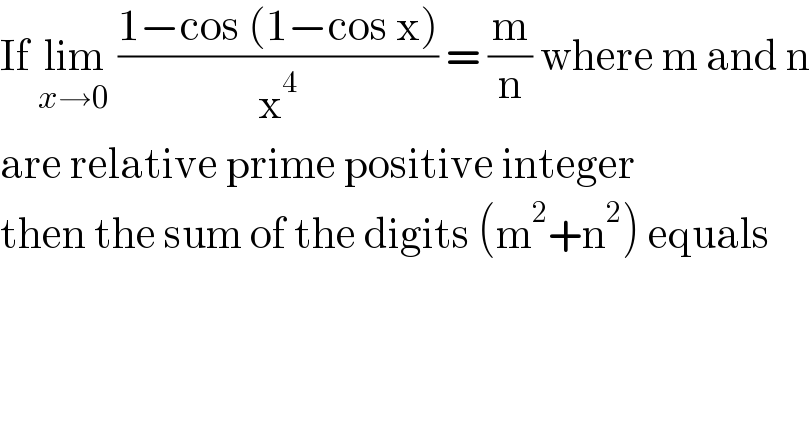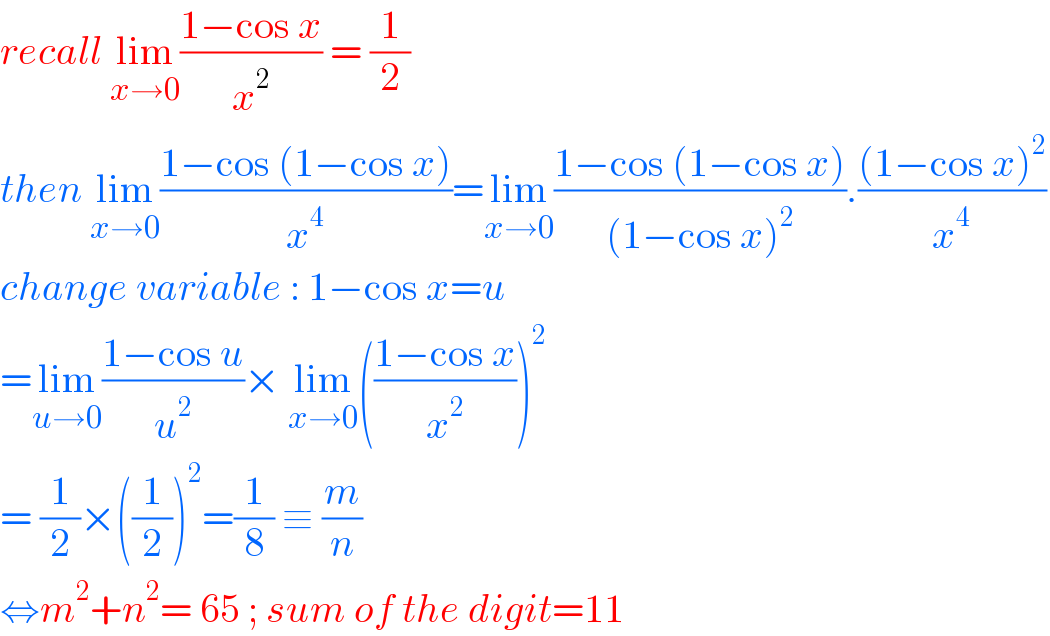
Question and Answers Forum
Question Number 131369 by liberty last updated on 04/Feb/21

Answered by EDWIN88 last updated on 04/Feb/21

| ||
Question and Answers Forum | ||
Question Number 131369 by liberty last updated on 04/Feb/21 | ||
 | ||
Answered by EDWIN88 last updated on 04/Feb/21 | ||
 | ||
| ||